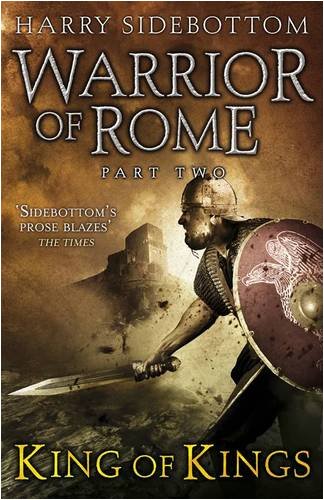King of Kings
Harry Sidebottom continues his Warrior of Rome series where part one – Fire in the East – ended. Marcus Clodius Ballista, Dux Rupae, defender of the lands between the rivers Tigris and Euphrates, leads his remaining troop to the safety of the mountains thus hoping to outpace the Persian Sassanid Cavalry hard on their heels. It is autumn 256 AD and Ballista has lost, through betrayal, the siege of the city of Arete. At the end he hoped to have gained for Rome a year’s grace as the Empire in the East continues to crumble.
In King of Kings, Ballista, born a barbarian, sometime imperial favourite, now finds himself to be expendable. A year after the fall of Arete he is appointed by the ageing emperor, Valerian, as deputy governor in Asia and sent to Ephesus, where his task is the rigorous persecution of the atheistic sect of Christians.
The reader is never in doubt of Dr. Sidebottom’s command of the history he portrays. The appendix is impressive, the glossary essential to understanding the complex titles of the Imperium. The frustration, glory, fear and death of the Roman soldier is described in vivid terms, each component of the legion explained making a cohesive whole.
Part one of the series was total immersion in siege warfare; utterly compelling. Here, in part two, the author is on firm ground when affairs take on a military stand; however, chinks in his impressive armour start to show when the story turns to civilian issues. New characters are suddenly and briefly introduced, leaving a vague feeling of disconnection.
Overall, the novel is an intelligent portrait of a turbulent period. It is strong stuff. I await the emergence of part three when we are promised more in-depth descriptions of the main protagonists.










